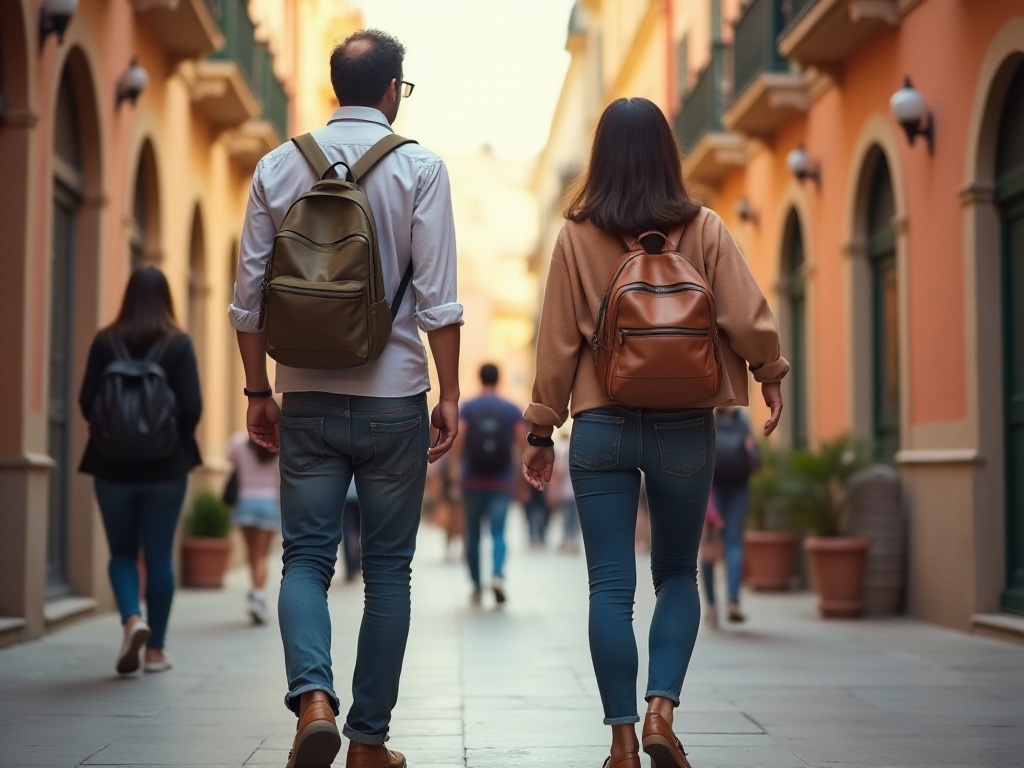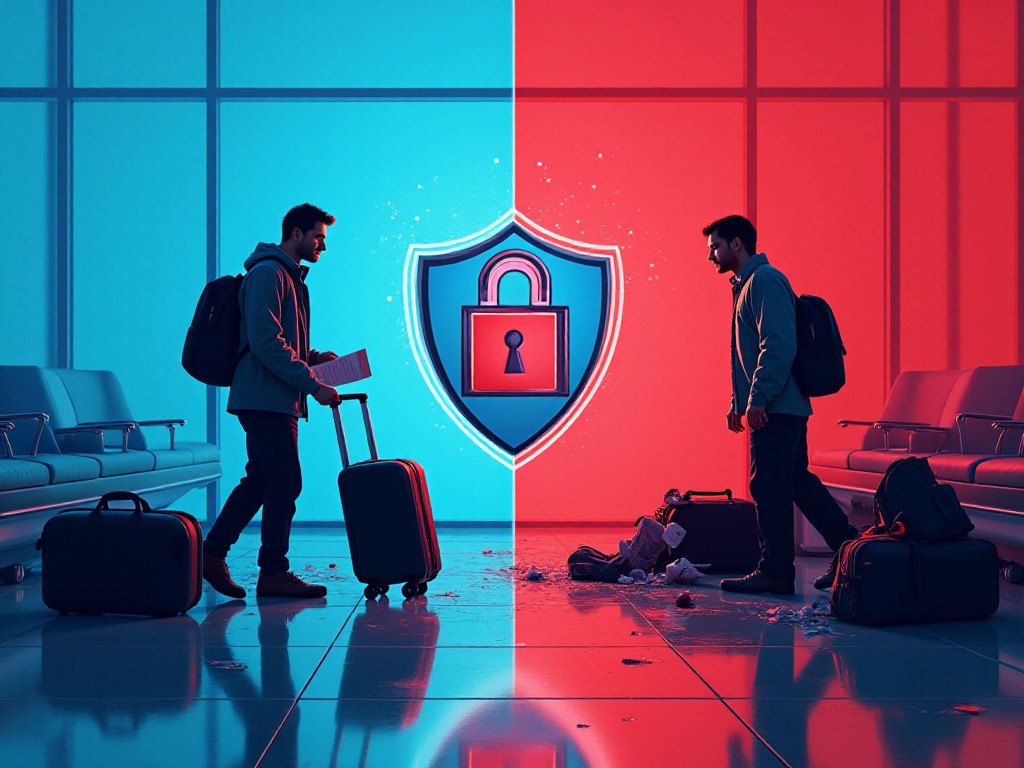
Introduction
As a travel blogger who has visited over 30 countries, I deeply understand the importance of accommodation safety during solo travel. During my first solo trip to Southeast Asia shortly after graduation, I was on a tight budget and always looking to save money. One night, because I hadn't booked in advance, I took a chance and found a cheap place online at the last minute. When I arrived at around 10 PM, I was shocked - the area was pitch black with barely any streetlights, and the inn was deep inside a dark alley.
Although I made it through that night safely, the nervous feeling remains unforgettable. I lay in bed, staring at the ceiling, straining to hear any sounds from outside, worried something might happen. I deeply regretted trying to save those few dollars only to end up so anxious. This experience taught me a profound lesson: never compromise on accommodation safety, and there are limits to saving money.
Location Strategy
When choosing accommodation, location is paramount. Now I spend considerable time researching the surrounding area before booking. I first open Google Maps, zoom in on the target location, and carefully examine what's within a 500-meter radius. The basic requirements are having convenience stores, restaurants, and other amenities, with sufficient foot traffic. My stay near the Bastille in Paris was particularly excellent - I chose a boutique hotel in an area that was not only convenient, with a metro station right next to the hotel, but most importantly, the entire neighborhood was very lively.
I remember one night after returning from a Seine River cruise, it was almost midnight, but there were still many people on the streets. The sidewalk cafes were brightly lit, with scattered groups of diners leisurely enjoying the nightlife. Walking back to the hotel, I didn't feel scared at all. When passing by the 24-hour convenience store, I even went in to buy some water and snacks. This feeling was very reassuring, with no worry about what to do if hungry or thirsty in the middle of the night.
In contrast, my friend in Rome wasn't so lucky. She had found a nice hotel in the city center but thought it was too expensive, so she chose a cheaper hotel near the terminal station. She saved money, but at a cost. The area was practically a ghost town at night, without even a place to get water. She had to return before dark every day, afraid of missing the last train. Plus, there was quite a walk from the metro station to the hotel, and the street lights on that route flickered on and off. She couldn't take it after two days and ended up moving to the city center, preferring to spend more money for peace of mind.
Actually, there's another detail in location selection - staying away from areas with poor security. Every city has such neighborhoods, where housing is cheap but risky. Now when I book, I usually check local forums or ask friends in the area about which areas to avoid. Sometimes when looking at listings online, if the price is particularly cheap, it's usually in these areas. These kinds of "deals" really shouldn't be taken - safety is the most worthwhile investment.
Also, try to choose street-facing rooms, avoiding those in back streets or deep in alleys. Street-facing rooms are relatively busy both day and night, and it's more convenient for taxis and food delivery. I once stayed at a backstreet guesthouse in Singapore, and although the environment was nice, I had to make several turns every time I returned, and walking on those quiet small roads always made me nervous.
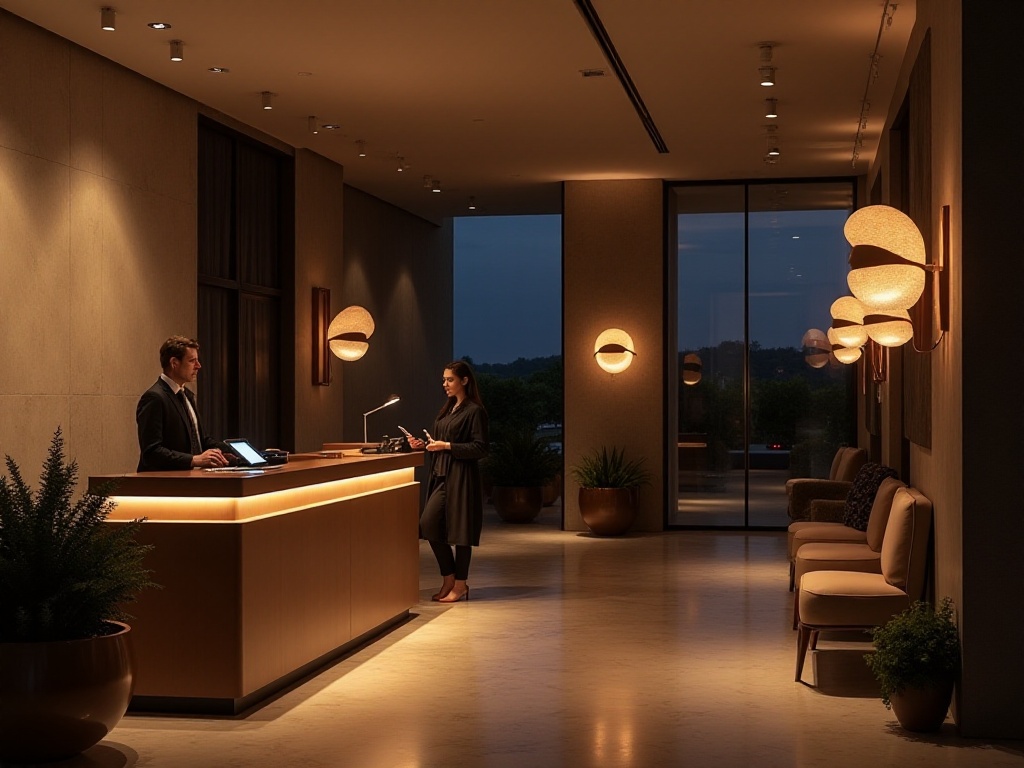
Booking Preparation
Regarding booking, I now book as far in advance as possible, especially in popular tourist cities. For instance, when visiting Universal Studios Osaka, I secured my accommodation three months ahead. I chose a chain hotel next to the park - though not cheap, the location was perfect. I didn't need to wake up too early to arrive before opening, and when tired at night, it was just a few steps back to the hotel.
While queuing to enter the park, I overheard someone complaining. They couldn't book a nearby hotel and had to stay in the suburbs, spending over an hour commuting each day. Worse still, they had to wake up at four or five in the morning to catch the first subway. This wasn't a vacation - it was torture. So, accommodation really needs to be planned in advance; the earlier you book, the better the location you can get, and the price will be more reasonable.
When booking, I pay special attention to reviews, not just the scores but the specific content. I particularly focus on reviews written by women, as they tend to be more attentive to safety details. For example, whether the route back is dark and quiet at night, how good the soundproofing is, whether the door locks are sturdy, etc. If multiple people mention similar safety concerns, I'll immediately abandon that option.
Sometimes when seeing extremely cheap listings, you must be extra cautious. I'll check if this price is normal for the market - if it's ridiculously low, there's probably a catch. Previously in Bangkok, I saw a five-star hotel offering two-star prices. After investigation, it turned out they were renovating, which explained the cheap rate. In such situations, staying there would definitely be inconvenient and might even affect your rest.
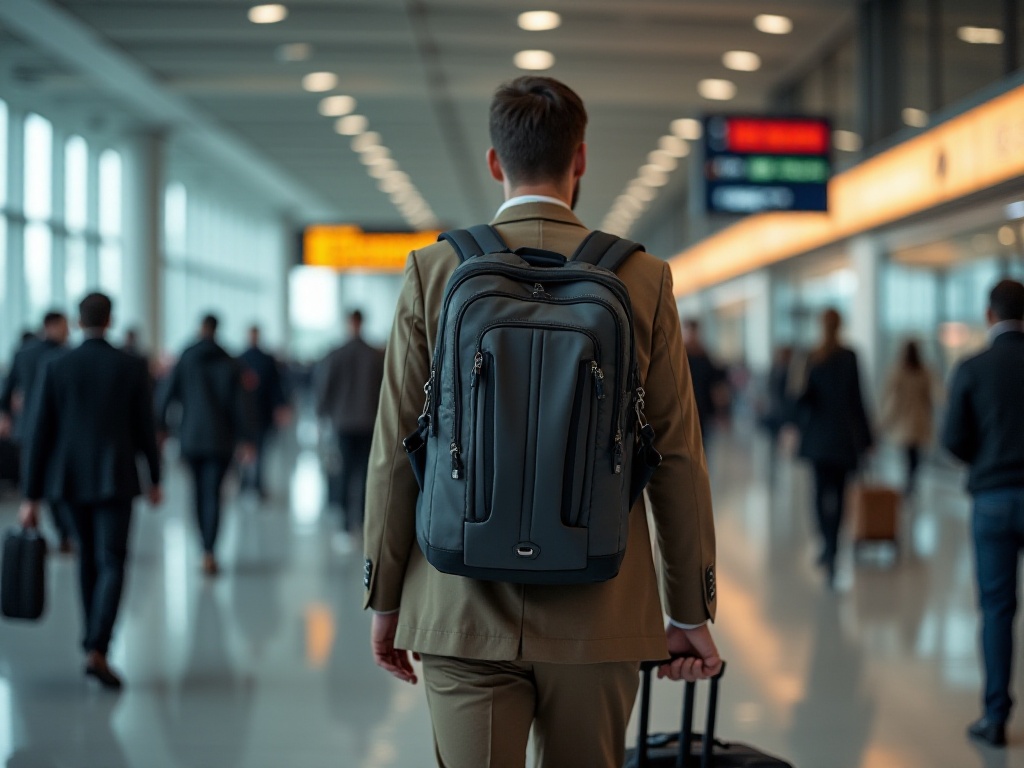
Check-in Rules
Every time I check into a new room, I have my own "safety check" procedure. First is checking the door lock, not just whether it works well, but also if there's a door chain or security latch. These things might seem minor but can be crucial in emergency situations. My experience in Chiang Mai was a lesson - I found the door lock was loose and there wasn't even a door chain. After reporting to the front desk, they could only offer to change rooms. Although it was a bit troublesome, this inconvenience was nothing compared to safety.
Window safety checks are also important. Verify if windows can be fully closed and if the locks are secure. This is especially important when staying on lower floors. I once stayed in a first-floor guesthouse in Seoul where the windows faced the street. Although there were security screens, I still felt uneasy. Later, I used my suitcase to block the window, which helped me sleep more soundly.
The curtains' light-blocking effect should also be tested. I specifically wait until dark, turn off the room lights, and check if people outside can see into the room. If the curtains are too transparent, people outside can see inside when the lights are on at night, which is very unsafe for solo female travelers. In such cases, I use bath towels or large towels to reinforce the curtains.
It's also important to familiarize yourself with the room's safety facilities, such as where the emergency exit is, where fire extinguishers are located, and how to use them. This information might not be needed normally but becomes crucial in emergencies. I specifically look for emergency evacuation maps in the room and remember the locations of the nearest emergency exit and stairs.
If staying in shared accommodations, like hostel dormitories, even more attention is needed. I usually choose female-only rooms, preferably upper bunks. While upper bunks are less convenient for getting in and out, they're generally safer. When choosing beds, pay attention to position - try to choose spots near the door or window, so you can quickly escape if something happens.
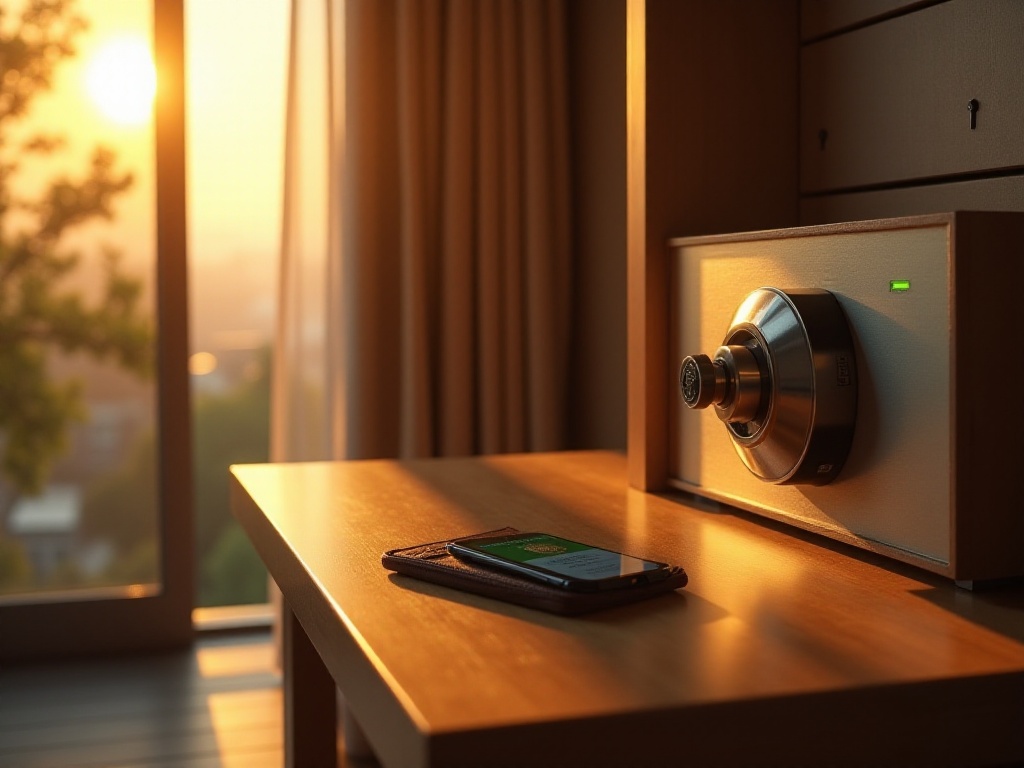
Item Safety
Regarding valuables, my advice is don't bring them if you don't need to, and if you do, don't make them obvious. The example in Bali illustrates this point. That woman wore various branded jewelry to the beach, practically sending an invitation to thieves. As a result, her bag was stolen while swimming, containing her wallet, passport, and jewelry, resulting in losses of tens of thousands. Actually, when traveling, simpler is safer. A plain necklace and a simple watch are enough - there's no need to deck yourself out in jewels.
I usually distribute valuables in different places, never putting everything in one bag. For example, cash can be divided into several portions and stored in different locations, so if theft occurs, the loss won't be too great. When staying in hotels, always use the safe if available. However, note that safes aren't 100% secure. I put the most important documents and most of my cash in the safe, carrying only enough money for daily use and photocopies of documents.
Luggage security is also important. If leaving the room for an extended period, I lock my suitcase with a luggage lock. Although most staff are honest, it's better to be safe than sorry. Especially when staying in guesthouses where different people might enter the room, an extra layer of protection is always good.
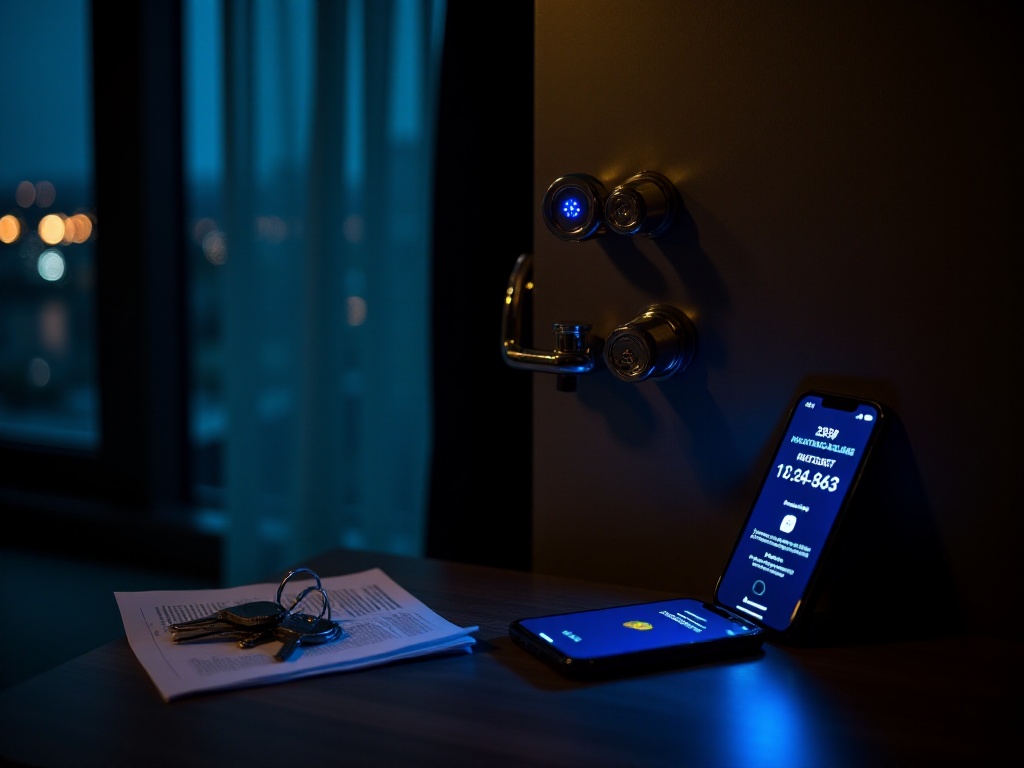
Financial Management
Regarding carrying money, I now use the "triple-third" principle: cash, credit cards, and mobile payments each accounting for one-third. The advantage is having backup plans for unexpected situations. For example, abroad, some small shops only accept cash, some places only take cards, and many places now support Alipay or WeChat Pay. Having multiple payment methods prevents the embarrassment of being unable to pay.
[Due to length limitations, this is part one. Would you like to see part two?]
Next
What's it Like to Travel Alone in Istanbul? Safety Tips and Practical Advice
A comprehensive guide covering pre-trip preparation, personal safety measures, accommodation security, financial protection, and emergency response procedures to help travelers minimize risks and ensure a safe journey
A Solo International Traveler's Safety Guide: From Pre-Trip Preparation to Emergency Response - Everything You Need to Know
A comprehensive travel safety guide covering pre-trip preparation, destination research, practical information gathering, personal security, financial safety, transportation safety, and emergency response protocols for a secure travel experience
Complete Guide to Self-Driving Tour in Tibet: Insights from a Veteran Driver's 20,000 Kilometers Experience
A comprehensive guide covering essential travel safety aspects, including pre-trip preparation, safety protocols during travel, emergency planning, and practical security advice for different groups of travelers
Next

What's it Like to Travel Alone in Istanbul? Safety Tips and Practical Advice
A comprehensive guide covering pre-trip preparation, personal safety measures, accommodation security, financial protection, and emergency response procedures to help travelers minimize risks and ensure a safe journey

A Solo International Traveler's Safety Guide: From Pre-Trip Preparation to Emergency Response - Everything You Need to Know
A comprehensive travel safety guide covering pre-trip preparation, destination research, practical information gathering, personal security, financial safety, transportation safety, and emergency response protocols for a secure travel experience

Complete Guide to Self-Driving Tour in Tibet: Insights from a Veteran Driver's 20,000 Kilometers Experience
A comprehensive guide covering essential travel safety aspects, including pre-trip preparation, safety protocols during travel, emergency planning, and practical security advice for different groups of travelers

